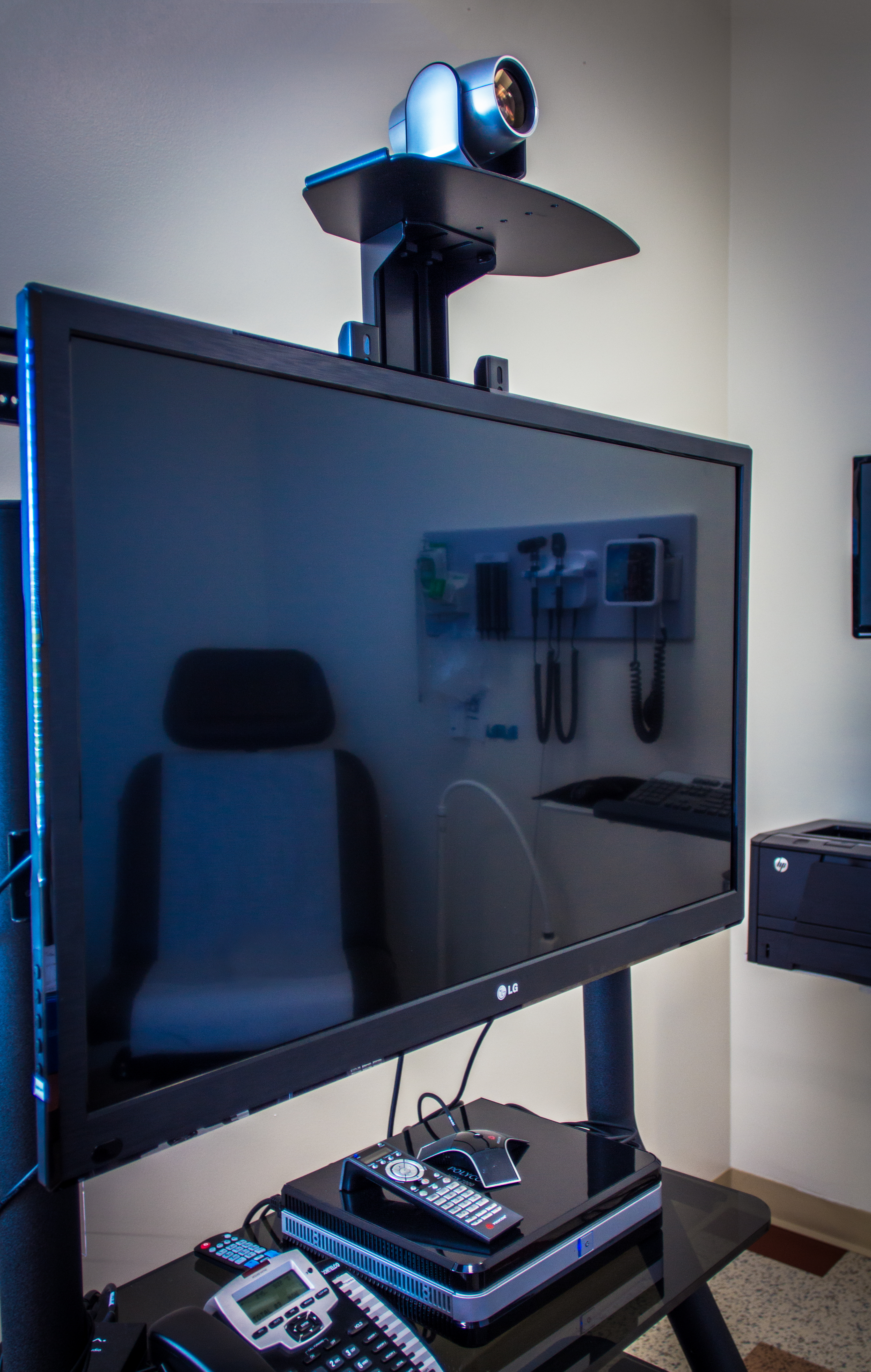
 With psychiatrists in short supply throughout the community, UC Merced is leveraging modern technology to expand that service to students.
With psychiatrists in short supply throughout the community, UC Merced is leveraging modern technology to expand that service to students.
The UC’s 10th and newest campus is the first within the system to provide telemedicine psychiatry. Students who are referred to a psychiatrist are linked to an off-campus doctor through a secure video-conferencing system at the H. Rajender Reddy Health Center. Referrals are made through the health center.
Up to 80 hours of psychiatric services are offered monthly, compared to the eight hours formerly provided at the campus health center. Counseling and psychotherapy continue to be available at the center.
The demand for and breadth of health services, including psychiatric help, grows as the campus’ student body increases, said Greg Spurgeon, associate director of the health center. Some students have issues that are well-managed at home but require follow-up care or attention on campus, he said.
“Part of our mission is to educate and partner with students to manage their health care and make smart choices regarding their wellness,” Spurgeon said.
Once referred to the telemedicine psychiatry program, students are scheduled for an appointment and checked in by a medical assistant. The session takes place at the health center in a private, confidential room with a camera and television.
Students see the same psychiatrist at each visit and their insurance is billed for the session. Spurgeon said students seem to be comfortable with all aspects of the arrangement.
“Students have been receptive, which is the key to success,” he said. “They love technology, so this program is a great fit for them.”
Launched in late spring, the program is a partnership between UC Merced and Community Psychiatry, which has 20 offices in California.
Dr. Mark Levine, founder, owner and director of Community Psychiatry, said a similar arrangement with Chico State has been in operation for several years. The company also offers remote services at a half-dozen rural health centers, he said.
College has become a more stressful experience over time, he said. Students may face challenges such as depression and anxiety, and it is critical to ensure that they have access to psychiatric services on campus.
“Catching this early, when you’re having mild symptoms, is important,” he said. “So convenience is important.”
Video therapy is a valuable tool in communities that have limited psychiatric services.
“In my opinion, nothing is better than face-to-face,” Levine said. “This doesn’t replace that —this is when face-to-face is not possible.”
That is an issue in Merced County, which has a serious shortage of psychiatrists. A 2013 report by the California Healthcare Foundation noted that the county only has slightly more than two psychiatrists per 100,000 people.
Spurgeon said that shortage, and the issue of timely access, has affected the UC Merced campus. Most frequently, he said, students need to see a psychiatrist to assist with managing prescription medication.
Spurgeon said the university may look into expanding the telemedicine program to include other services, such as dermatology — another area of need on campus. Additional equipment would be required, he said.
Brenda Ortiz

Senior Public Information Representative
Office: (209) 228-4203
Mobile: (209) 628-8263






